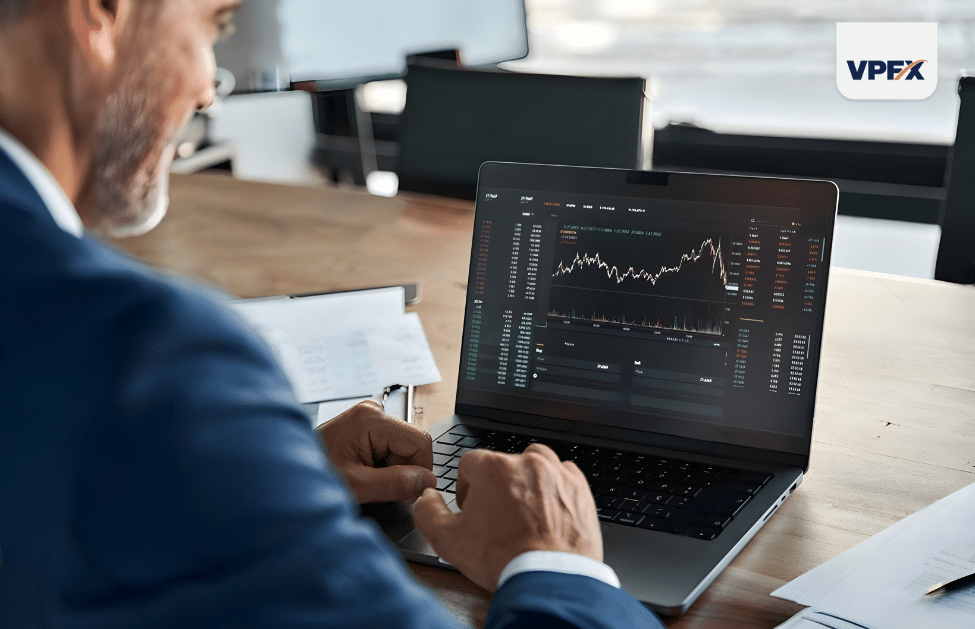In today’s world, where the internet connects everything, social media influences go way beyond personal stories or keeping in touch with friends. It has become a serious power, influencing public opinion, trends, and financial markets. More and more awareness has developed in recent years of how trends on social media affect market sentiment and stock prices.
In this blog, we will discuss the social media impact on stock prices. We will understand the dynamics between social media, market sentiment, and stock prices.
The Power of Social Media
In the financial world, with Twitter, Reddit, Instagram, and Facebook, anyone can comment on anything. Social media is an open platform whereby, in financial terms, ideas and strategies are discussed, and investors and analysts gauge market sentiments; at times, even companies show up on the platform. That’s how social media and stocks are interconnected. This is what is called Market sentiment: the general attitude toward a certain stock, a sector, or the market in general.
It can be bullish, which would mean positive, or bearish, which is the opposite and can all depend on feelings pertaining to future movements of prices. Social media has become a critical factor in shaping sentiment because the medium allows information, opinions, and rumours to spread so quickly that they affect investor decisions.
How Social Media Trends Influence Market Sentiment
Here is how the trends on social media influence market sentiments:
Instantaneous Information Sharing: One of the major facets of social media is the speed at which it disseminates information. News, rumours, and opinions spread in a trice on platforms such as Twitter or Reddit. Today, investors and traders do not have to wait for an official announcement or media reports; they get all information from a host of sources in real-time.
For instance, if a company publishes quarterly earnings, social media users may immediately begin spreading their opinions on them. If the results are positive, this can quickly turn into optimism, reflecting a bullish trend and upward surge in the stock’s price. On the other hand, negative comments can give rise to panic, bearishness, and a downfall in stock price trends.
Viral Trends and Memes: Social media often ignites particular trends or events, frequently in the form of memes or viral content. Generally, what began as a discussion may quickly go viral, capturing the attention of media, investors, and the general public alike.
This way, the social media trend can defy conventional market expectations, creating significant volatility in stock prices. It also highlights the growing influence of retail investors, who can now move markets in ways previously reserved for institutional players.
The Influence of Influencers: Influencers on social media, particularly on platforms like Twitter, can significantly impact market perceptions. With a single tweet, they have the potential to cause stocks to surge or plummet within minutes.
For instance, when an influencer expresses concerns about the environmental impact of a popular stock, its price drops swiftly. Similarly, their comments on other digital currencies can lead to dramatic price fluctuations. Investors now closely monitor social media for potential market movements based on the opinions of key influencers.
The Role of Sentiment Analysis: With the increasing use of artificial intelligence and machine learning, companies and traders have now begun to adopt sentiment analysis tools to track social media platforms for market sentiment. These tools help analyse large social media data in order to provide the overall sentiment about an asset as bullish, bearish, or neutral.
For instance, sentiment analysis may pick up a rapid increase in positive mentions of a particular stock, thereby indicating that investor sentiment is turning more optimistic. The information can be used by the traders in trying to always be a step ahead in the market.
Social Media and Stock Prices
Several of the aspects that contribute towards how social media trends affect share prices are as follows:
Herd Mentality: Social media has a great tendency to further enhance the situation of herd mentality. Instead of personally researching a company, investors often follow the crowd. When a stock starts trending on social media, it can create a snowball effect. Investors may buy or sell based on what they see others doing, leading to sharp price movements.
For example, when a stock becomes the focus of discussions on either Reddit or Twitter, the sudden surge in the number of buyers will drive its price upwards very quickly. Other investors get scared that they will miss an opportunity and hence board the same bandwagon, pushing its price even further. A behavior of this kind inflates the price of stocks; sometimes, the result could be market bubbles.
Market Volatility: Social media contributes to increased volatility within markets. These huge swings are often the result of rapid sentiment shifts, virally trending, or influential figures. Stocks that attract significant chatter on social media tend to have higher volatility, which may make them even more precarious to invest in.
For instance, the stock’s prices may surge dramatically within a few days, only to fall back shortly thereafter. Investors who follow the trend on social media and buy at its peak will suffer significant losses when the price is corrected.
Market Manipulation: While social media may prove a treasure trove for important information, it is also a place where bad influencers will look to manipulate the market. Bad influencers may spread false information or hype a particular stock to manipulate prices. A practice known as “pump and dump” involves the artificial inflation of a stock’s price through social media posts, after which the perpetrators sell off their shares for a gain after the price has increased.
Retail investors, however, should view with scepticism the making of any serious investment decisions based solely on social media trends. While some information may bear value, there does lie the potential of being taken in by manipulative means.
The Long-Term Impact of Social Media on Investing
The impact of social media on investing is a long-term phenomenon. The advent of social media has upended how people approach investment. It democratized information, so now the retail investors have more say in the market. On the other hand, it does carry risks when accessibility to broad social trends may lead to impulsive decisions and more volatility. Long-term investors should strike a balance between all critical aspects.
While social media may offer insight into investor sentiment and market trends, it is not a means by which one should base his investment decisions solely on the relation between trading and social media. Therefore, doing proper research into the company in which one is investing, diversifying investments, and having a view toward long-term goals remain important overall principles underlying successful investing.
Conclusion
In conclusion, social media has become a force that cannot be denied in shaping the mindsets of markets and impacting stock prices. With platforms such as Twitter, Reddit, and Facebook, information is flowing at warp speed, trends are going viral in minutes, and influencers are rising to move markets with just one posting.
While social media has so empowered retail investors and presented new opportunities, it has also brought on risks in the form of market manipulation and further volatility. Investors must be sure not only to respect the power of social media but also keep in mind the potential pitfalls.
In this way, investors who are well-informed, do fundamental research and avoid herd behaviour will be able to tackle the intertwined multilayered relationship among social media trends, market sentiments, and stock prices much more confidently.





